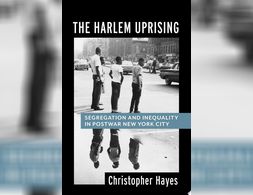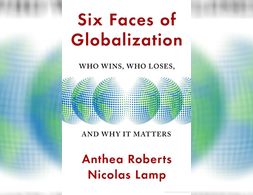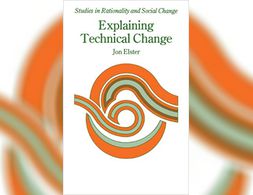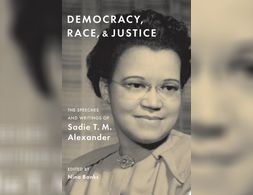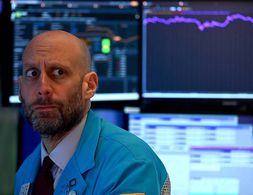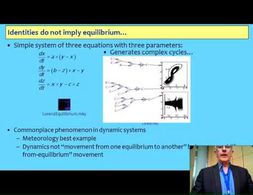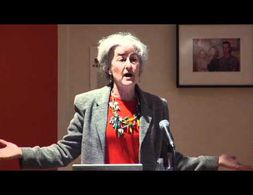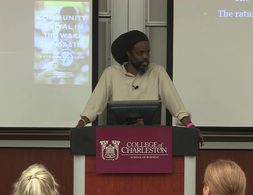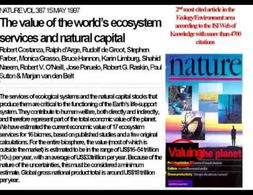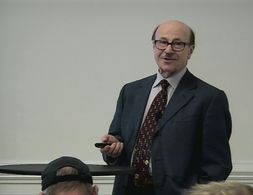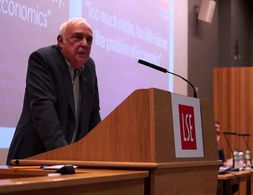✕
932 results
Winner of the Nobel Prize in Economics
Get ready to change the way you think about economics.
Get ready to change the way you think about economics.
Nobel laureate Richard H. Thaler has spent his career studying the radical notion that the central agents in the economy are humans--predictable, error-prone individuals. Misbehaving is his arresting, frequently hilarious account of the struggle to bring an academic discipline back down to earth--and change the way we think about economics, ourselves, and our world.
This book argues that mainstream economics, with its present methodological approach, is limited in its ability to analyze and develop adequate public policy to deal with environmental problems and sustainable development. Each chapter provides major insights into many of todays environmental problems such as global warming and sustainable growth.
Ecological economics addresses one of the fundamental flaws in conventional economics--its failure to consider biophysical and social reality in its analyses and equations. Ecological Economics: Principles and Applications is an introductory-level textbook that offers a pedagogically complete examination of this dynamic new field.
When Santa Fe Institute Scientists first started working on economics more than thirty years ago, many of their insights, approaches, and tools were considered beyond heterodox. These once-disparaged approaches included network economics, agents of limited rationality, and institutional evolution—all topics that are now increasingly considered mainstream.
In this book, the author, Intan Suwandi, engages with the question of imperialism through the specific channel of Global Value Chains.
Christopher Hayes examines the causes and consequences of the uprisings, from the city’s history of racial segregation in education, housing, and employment to the ways in which the police both neglected and exploited Black neighborhoods.
In this ambitious and impressive new book, journalist Howard French seeks to excavate the long elided central importance of the African continent as the “linchpin of the machine of modernity.” In the story of modernity, he writes, the role of Africa is diminished, trivialized, and erased, and by filling in some gaps in this story, he retells the story of modernity.
An ideal type of a pluralistic book. Instead of arguing for one specific interpretation of a complex phenomenon, the authors present six different views on globalisation. Roberts and Lamp carefully balance the different perspectives, presenting the merits of each.
This is an important contribution that defends the importance of heterodox economics. It discusses what constitutes heterodox economics as an intellectual, social, and political project, with a range of contributions from leading heterodox thinkers coming from a diversity of theoretical vantage points.
Why is it that some countries become rich while others remain poor? Do markets require regulation to function efficiently? If markets offer an efficient way of exchanging goods, why do individuals even create firms?
Technical change, defined as the manufacture and modification of tools, is generally thought to have played an important role in the evolution of intelligent life on earth, comparable to that of language. In this volume, first published in 1983, Jon Elster approaches the study of technical change from an epistemological perspective.
Wealth inequality between Black and white people in the US barely has changed in the last 150 years. In her book "The Color of Money. Black Banks and the Racial Wealth Gap" Mehrsa Baradaran, analyzes why also Black banks have not successfully changed this and not enabled Black wealth on a broader scale.
The authors show how consumers, business, the Federal Reserve, and government take into account what's going on around them to make critical decisions like buying new products, building new factories, changing interest rates, or setting budget goals. The book provides a clear roadmap to understanding the whole story behind the global economy.
The first book to bring together the key writings and speeches of civil rights activist Sadie Tanner Mossell Alexander--the first Black American economist In 1921, Sadie Tanner Mossell Alexander became the first Black American to gain a Ph.D. degree in economics. Unable to find employment as an economist because of discrimination, Alexander became a lawyer so that she could press for equal rights for African Americans.
The new online platform ‚DIY Macroeconomic Model Simulation‘ provides an open-source code repository and online script for macroeconomic model simulation. It follows a “do-it-yourself” (DIY) approach, empowering users to numerically simulate key macroeconomic models on their own using the programming language R.
This book discusses the relationship between pluralist economics and the case study method of teaching, advocating the complimentary use of both to advance economics education. Using a multi-paradigmatic philosophical frame of analysis, the book discusses the philosophical, methodological, and practical aspects of the case study method while drawing comparisons with those of the more commonly used lecture method.
Economics should schematically explain the key elements and main strands of this core part of social life: the actual workings of our economies. This book argues that orthodox, modern neoclassical economics does not fulfil this core task. Standard economics models do not address the real functioning of our market economies, but rather an imagined economy.
How has financialisation changed saving What are its implications on a macro economic level and from a welfare state perspective Craig Berry I PEEL
The vast uncertainty surrounding the possible spread of COVID 19 and the duration of the near economic standstill required to combat it make forecasting little different from guessing Clearly this is a whatever it takes moment for large scale outside the box fiscal and monetary policies Carmen M Reinhart Project …
In this Blog Post on developmenteconomics org Christina C Laskaridis PhD candidate in Economics at SOAS elaborates on the economic fallout of the corona pandemic and especially its impact on the Global South The author focuses in particular on the issue of debt moratoria and debt restructuring and the measures …
The author discusses the various dimensions of the recent hike in inflation in the context of the United States and policy dilemmas around high inflation GDP decline and unemployment Servaas Storm Institute for New Economic Thinking
This course is an introduction to the economic theories of financial crises It focuses on amplification mechanisms that exacerbate crises such as leverage fire sales bank runs interconnections and complexity It also analyzes the different perspectives on the origins of crises such as mistaken beliefs and moral hazard and discusses …
Use economic models to learn how prices and markets benefit society in the face of scarcity and then apply those models to analyze policy Jonathan Gruber edX Massachusetts Institute of Technology
Economist and 2020 Balzan Prize winner for Environmental Challenges: Responses from the Social Sciences and Humanities, Joan Martínez Alier, speaks on the importance of ecological economics and its timeliness around the 2007/2008 global financial crisis. He speaks on the importance of building the field of ecological economics “from the ground up” through praxis.
Steve Keen discusses DSGE modeling and microfoundations by asking the question if it is ideologically possible to derive macroeconomics from microeconomics.
Feminist economist Nancy Folbre presents a historical analysis of the interrelated development of Patriarchy and Capitalism. She describes the role of women in the reproduction of labour, their “specialization” in care and their changing involvement in the labour market. Folbre argues that capitalism weakens patriarchy but at the same time relies on unpaid caring activities.
In this talk, Virgil Henry Storr, a Research Associate Professor of Economics in the Department of Economics at George Mason University, talks about his research into to post-disaster recovery and the role that social entrepreneurship plays in rebuilding the communities and social networks that get disrupted, or entirely eliminated.
The podcast explores the psychosocial implications of poverty in the society. Keetie Roelen investigates how the emotion of shame and policy-making are intertwined.
Robert Costanza briefly present various methods of environmental valuation, and talks about the changes in the global value of ecosystem services. He then introduces the major ecosystem services, and how different methods of valuation affect the preferred policies to address environmental issues.
Donald Trump won in 2016 largely because enough voters in three states, all in the Rustbelt, which had voted for Barack Obama in both 2008 and 2012, switched their electoral votes from Democratic to Republican.
Professor Jennifer Clapp explains the dynamics of financialization of land and agricultural commodities in Subsaharan Africa. She points to the historical roots of accelerated land speculation and their connection to financial institutions, both generating and reinforcing the process of financialization of African land. Besides talking about roots and dynamics of speculation with land on financial markets, she puts the perspective of scholarly investigation onto the investor's side in discussing guidelines of responsible investment and regulation in the front instead of focussing on the receiving countries.
This panel discusses the role of mathematics and history in economics. Lord Robert Skidelsky and Dr. Ha-Joon Chang advocate for a more prominent role of history and a less prominent role of mathematics within economics. Prof. Steve Pisckhe and Prof. Francesco Caselli defend the dominant role of mathematics within economics. Each of the speakers gives a 10-15 minutes talk advocating his position, before the panel is opened up for Q&A. The discussion is moderated by Prof. James Foreman-Peck.
We use cookies on our website. Click on Accept to help us to make Exploring Economics constantly better!






